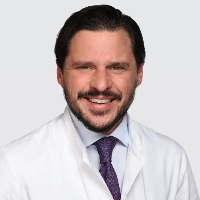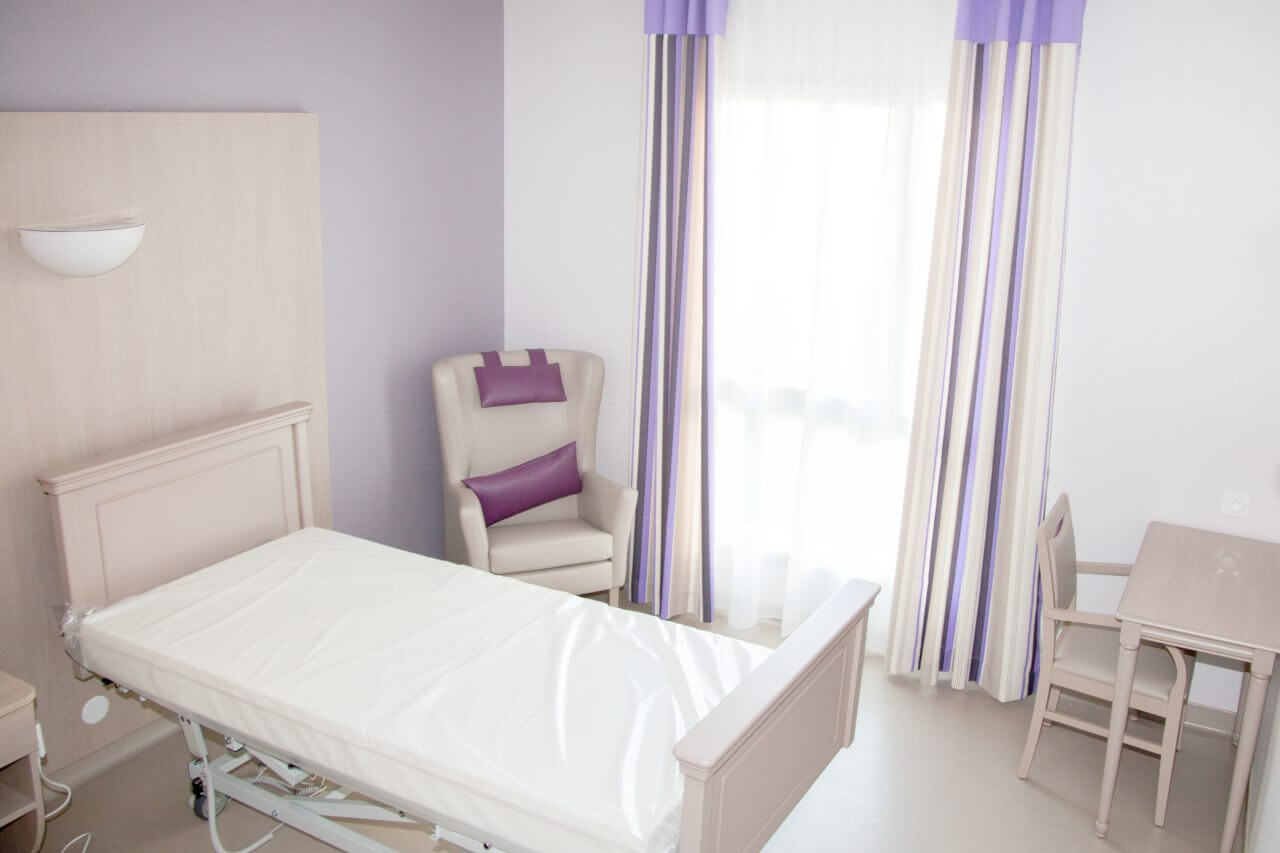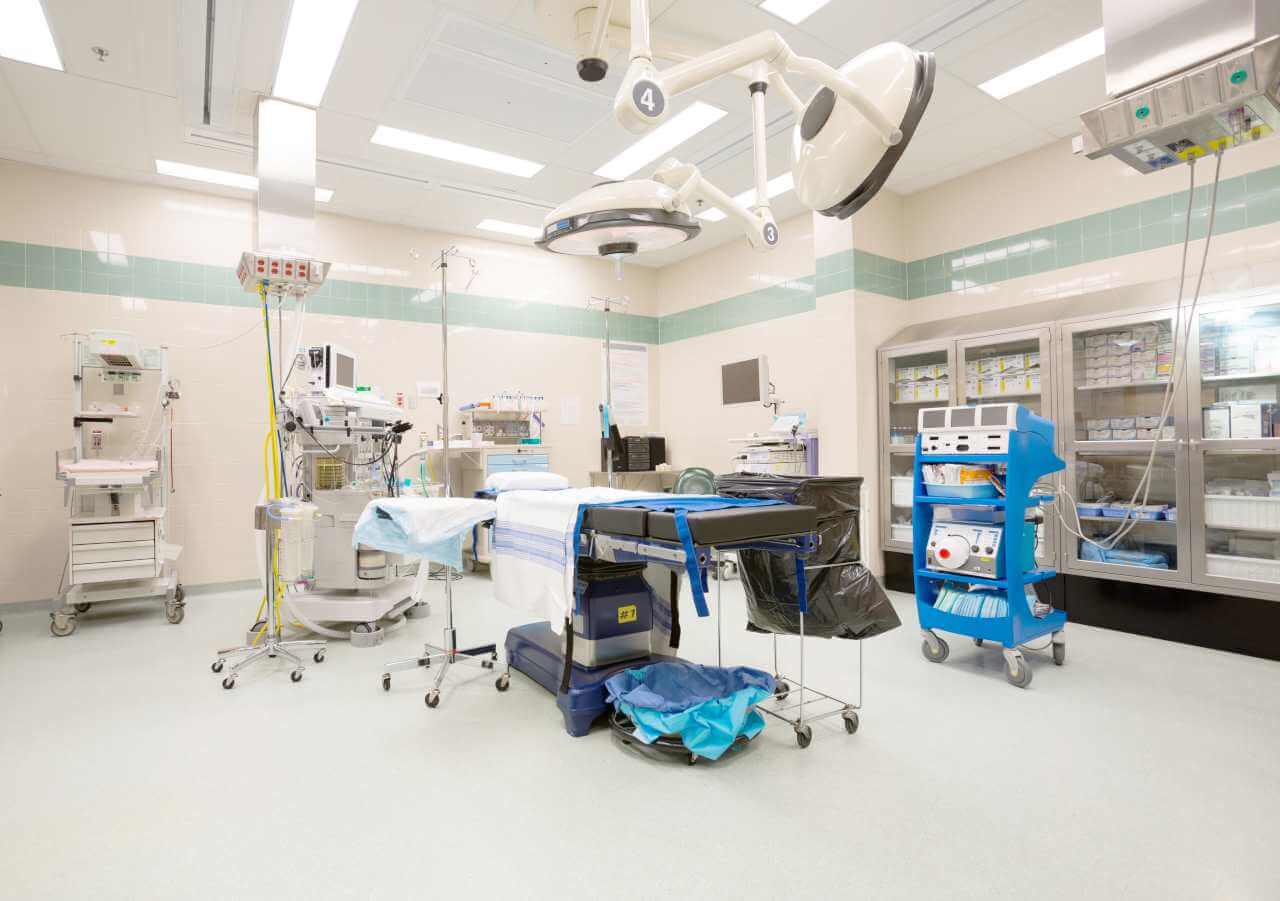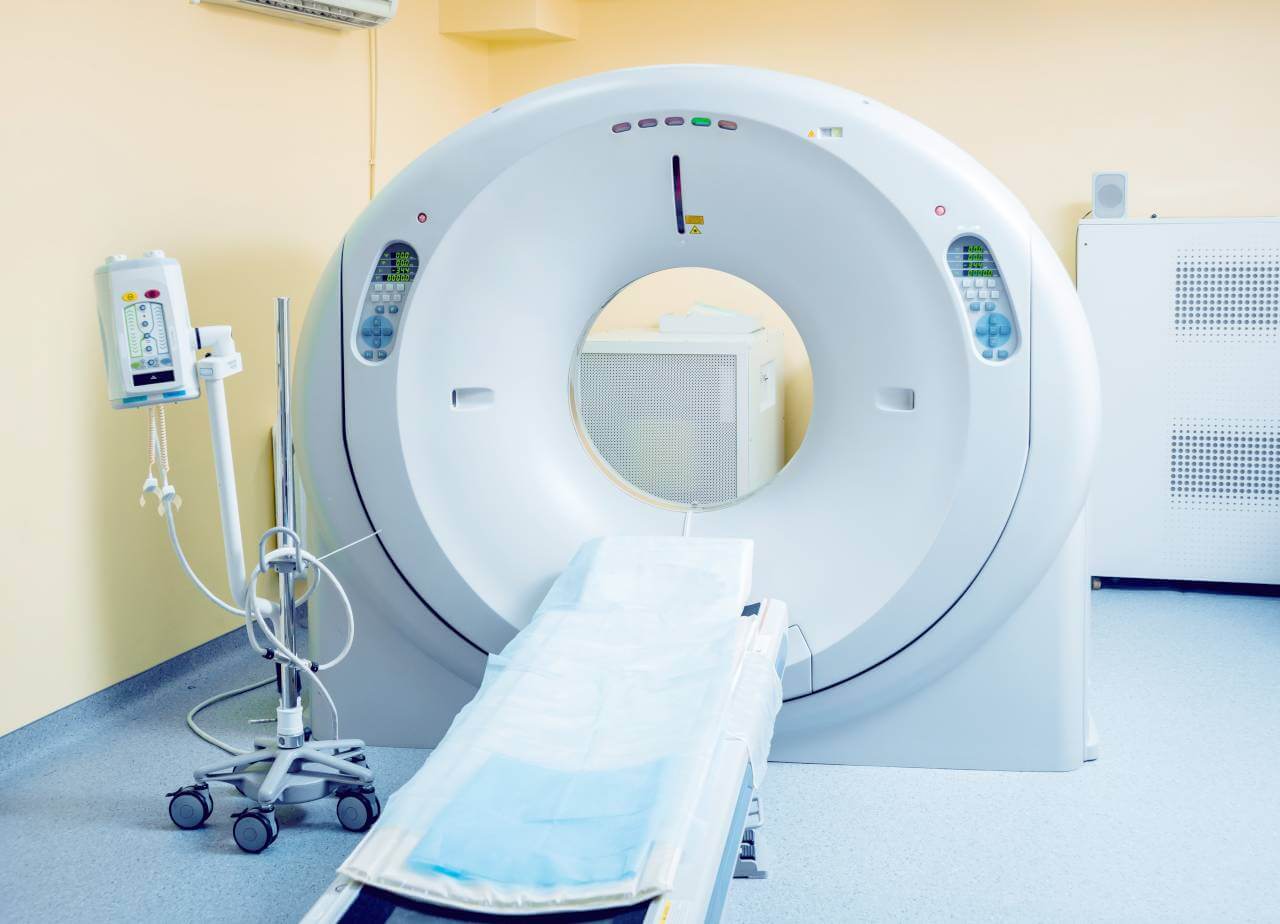
The program includes:
- Initial presentation in the clinic
- clinical history taking
- general clinical examination
- laboratory tests:
- complete blood count
- general urine analysis
- biochemical analysis of blood
- TSH-basal, fT3, fT4
- tumor markers
- thyroid autoantibodies
- indicators of inflammation
- indicators of blood coagulation
- thyroid ultrasound
- CT scan of the thyroid gland (on indication 650 €)
- MRI scan of the thyroid gland (on indication 1200 €)
- thyroid scintigraphy
- biopsy of the thyroid tumor with histological examination (on indication 2000 €)
- nursing services
- consultation of related specialists
- consultation of the chief physician and all leading experts
- development of individual treatment plan
- written statement
Required documents
- Medical records
- MRI/CT scan (not older than 3 months)
- Biopsy results (if available)
Service
You may also book:
 BookingHealth Price from:
BookingHealth Price from:
About the department
The Department of General and Abdominal Surgery, Hepatopancreatobiliary Surgery, Colorectal Surgery, Endocrine Surgery and Hernia Surgery at the ISAR Hospital Munich offers the full range of surgical treatment in its areas of competence. In the modern operating rooms of the department, benign and malignant diseases of the stomach, esophagus, colon, rectum, anal canal, liver, gallbladder, and bile ducts are operated on. The specialists successfully perform hernioplasty with mesh implants for inguinal, umbilical, and incisional hernias. In the field of endocrine surgery, the department's team of doctors offers surgical treatment for thyroid and parathyroid pathologies. The specialists have excellent professional skills in the field of minimally invasive surgery; the department has been certified by the German Society for General and Abdominal Surgery (DGAV) as a Center of Excellence for Minimally Invasive Surgery. In addition, one of the operating rooms of the medical facility is equipped with the latest generation da Vinci surgical robot. It is worth noting that only a small number of medical centers in European countries specialize in performing robot-assisted operations on the gastrointestinal tract. An important role here is given to caring for the patient’s comfort: patients are surrounded by attention during the therapeutic process, specialists show understanding and a humane attitude, and support them in every possible way.
The Head Physician of the department is Prof. Dr. med. Franz Bader. He is one of the best specialists in Germany in the field of minimally invasive surgery for gastrointestinal diseases and is highly skilled in da Vinci robot-assisted surgery. Dr. Bader's professional training took place at the best hospitals in Germany, including the University Hospital Luebeck, which is recognized as one of the leading centers for minimally invasive surgery in Europe. In parallel with his successful clinical practice, Prof. Franz Bader is actively involved in research activities, the results of which are demonstrated in more than 100 scientific papers in national and international publications.
The department's abdominal surgeons have excellent professional skills in the treatment of stomach and esophageal diseases. They mostly operate on patients with gastroesophageal reflux disease (GERD), diverticular disease, esophageal cancer, gastric cancer, gastrointestinal neuroendocrine tumors, and peritoneal carcinomatosis. At the stage of examining patients suspected of having the above pathologies, gastroenterologists and radiologists are involved in the diagnostic process. Gastroesophageal reflux disease, in which acidic stomach contents reflux into the esophagus, is typically well controlled by medication. However, when medications do not achieve the desired result, doctors offer patients surgical treatment options. The most effective surgical procedure for GERD is fundoplication, the essence of which is to wrap the fundus of the stomach around the esophagus. This allows for the creation of a cuff that prevents gastric contents from refluxing into the esophagus. Fundoplication is performed in the department using minimally invasive techniques.
Of particular interest to the department's abdominal surgeons is the surgical treatment of esophageal and stomach malignancies. Each clinical case is reviewed by an interdisciplinary tumor board with the participation of abdominal surgeons, gastroenterologists, oncologists, radiation therapists, radiologists, and other experts. In most cases, the patient receives neoadjuvant chemotherapy and/or radiation therapy to shrink the size of the tumor, followed by one of the following surgical procedures: esophagectomy (removal of part or all of the esophagus) for esophageal cancer or gastrectomy (removal of part or all of the stomach) for stomach cancer. Whenever possible, the department uses sparing laparoscopic techniques or da Vinci robot-assisted surgery for the surgical treatment of stomach and esophageal cancer.
Abdominal surgeons also successfully operate on patients with peritoneal carcinomatosis. This oncopathology is a multifocal tumor lesion of the peritoneum due to metastasis of malignant neoplasms of various primary localizations. Peritoneal carcinomatosis is a complex oncological disease that was virtually untreatable not so long ago. The department's specialists provide innovative treatment using cytoreductive surgery in combination with hyperthermic intraperitoneal chemotherapy (HIPEC). In this case, the primary tumor and metastatic foci are first removed as much as possible, after which the abdominal cavity is rinsed with a solution of chemotherapy drugs heated to 42-43°C for about 90 minutes. The HIPEC procedure allows for local treatment of malignant lesions in the abdominal cavity with high doses of chemotherapy drugs without their entering the systemic circulation, resulting in effective destruction of cancer cells and virtually eliminating the side effects of chemotherapy. In addition, by heating the solution of chemotherapy drugs to high temperatures, their penetration into tumor sites is improved.
Hepatopancreatobiliary surgery is well developed in the department. This medical field focuses on operations for liver, gallbladder, bile duct, and pancreatic diseases. The department's specialists perform resections of liver cysts, liver hemangiomas, liver adenomas, focal nodular hyperplasia, malignant liver tumors, and liver metastases. Almost all operations for liver diseases are performed using minimally invasive techniques. Radiofrequency ablation and microwave ablation procedures are successfully used to remove liver malignancies and liver metastases. Surgeons in this specialty also treat cholelithiasis, cholecystitis, gallbladder polyps, gallbladder cancer, and bile duct cancer. Doctors perform cholecystectomy (surgery to remove the gallbladder) using minimally invasive techniques, with a hospital stay lasting only 2 days. Another important focus for hepatopancreatobiliary surgeons is the treatment of pancreatic diseases. Particular attention is paid to operations for pancreatitis, benign neoplasms (for example, serous cystadenomas, mucinous cystadenomas, etc.), and pancreatic cancer. If clinically indicated, da Vinci robot-assisted surgery can also be used to remove benign pancreatic tumors.
The department's therapeutic offer is complemented by colorectal surgery. The medical facility is recognized as a Center of Excellence for Colorectal Surgery by the German Society for General and Abdominal Surgery (DGAV). The specialists in this field operate on patients with colon cancer, rectal cancer, inflammatory bowel disease (Crohn's disease and ulcerative colitis), rectal prolapse, fecal incontinence, hemorrhoids, as well as anal fistulas, abscesses, and fissures. The optimal type of surgical procedure is prescribed on an individual basis. Colorectal surgery is performed at the medical facility using minimally invasive techniques.
The department's range of surgical services includes the following options:
- General and abdominal surgery
- Fundoplications for gastroesophageal reflux disease
- Diverticulectomy for diverticular disease
- Subtotal or total esophagectomy for esophageal cancer
- Subtotal or total gastrectomy for stomach cancer
- Wedge gastric resection for gastrointestinal neuroendocrine tumors
- Cytoreductive surgery combined with hyperthermic intraperitoneal chemotherapy (HIPEC) for peritoneal carcinomatosis
- Hepatopancreatobiliary surgery
- Surgery for liver diseases
- Minimally invasive resections of liver cysts, liver hemangiomas, liver adenomas, and focal nodular hyperplasia
- Classical open surgery for liver cancer and liver metastases
- Radiofrequency ablation and microwave ablation for liver cancer and liver metastases
- Surgery for gallbladder and bile duct diseases
- Minimally invasive cholecystectomy for cholelithiasis, gallbladder polyps, cholecystitis, and gallbladder and bile duct cancer
- Surgery for pancreatic diseases
- Minimally invasive and classical interventions for chronic pancreatitis, pancreatic cysts, and pancreatic cancer
- Minimally invasive and robot-assisted da Vinci surgery for benign pancreatic tumors: serous cystadenomas, mucinous cystadenomas, intraductal papillary mucinous neoplasms, etc.
- Surgery for liver diseases
- Colorectal surgery
- Minimally invasive resections of colon polyps and colon malignancies
- Minimally invasive resections of malignant rectal tumors
- Minimally invasive surgery for rectal prolapse
- Minimally invasive surgery for inflammatory bowel disease: Crohn's disease and ulcerative colitis
- Surgery for hemorrhoids
- Minimally invasive surgical procedures: Longo procedure, HAL-RAR procedure, and LigaSure hemorrhoidectomy
- Classical open surgical procedures: Milligan-Morgan hemorrhoidectomy, Ferguson operation, and Fansler-Arnold operation
- Surgery for anal fistulas and abscesses
- Surgery to remove an anal fistula with or without subsequent sphincter reconstruction
- Closure of the fistula using a mucosal flap
- LIFT technique
- Laser obliteration (Pit-Picking)
- Surgery for anal fissures
- Surgery for epithelial coccygeal passage
- Karydakis procedure
- Limberg flap repair
- V-Y plastic repair
- Laser obliteration (Pit-Picking)
- Surgery for fecal incontinence
- Sphincteroplasty
- Sacral neuromodulation
- Endocrine surgery
- Minimally invasive surgery for benign and malignant thyroid diseases
- Thyroidectomy (surgical removal of the thyroid gland)
- Hemithyroidectomy (surgical removal of a lobe of the thyroid gland)
- Surgery to remove thyroid nodules
- Minimally invasive surgery for benign and malignant parathyroid diseases
- Parathyroidectomy (surgical removal of the parathyroid glands)
- Minimally invasive surgery for benign and malignant thyroid diseases
- Hernia surgery
- Minimally invasive surgery for inguinal hernias
- Minimally invasive surgery for umbilical hernias
- Minimally invasive surgery for incisional hernias
- Other medical services
Curriculum vitae
Prof. Dr. med. Franz Bader has been Head Physician of the Department of General and Abdominal Surgery, Hepatopancreatobiliary Surgery, Colorectal Surgery, Endocrine Surgery and Hernia Surgery at the ISAR Hospital Munich since 2014. He worked as a Senior Physician in the Department of Surgery at the University Hospital Luebeck from 2009 to 2011 and as a Senior Physician and Head of the Section for Colorectal Surgery at the University Hospital Rechts der Isar Munich from 2011 to 2014. He was the Coordinator of the Center for Intestinal Diseases, created under his leadership, at the same university hospital.
Prof. Bader's clinical training in surgery took place at the Hospital Bogenhausen Munich and the University Hospital Luebeck, the latter enjoying the status of one of the leading centers for minimally invasive surgery in Europe. At the University Hospital Luebeck, the doctor's key focus was minimally invasive surgery, in particular for colorectal cancer and chronic inflammatory bowel disease. Prof. Franz Bader's numerous internships in Europe and the USA, in particular a two-year internship at the famous Karolinska Institute in Stockholm, contributed to the appearance of a large number of scientific publications in national and international publications and the receipt of various awards and prizes.
Prof. Franz Bader is the author of more than 100 scientific articles in renowned national and international journals and the author of several books and book chapters. He has also given over 250 presentations at national and international conferences.
The specialist studied human medicine at the Universities of Leipzig, Hamburg, Seattle (Washington, USA), and Munich. He is board certified in Surgery, Abdominal Surgery, and Proctology.
Research Interests
- Surgical treatment of gastrointestinal cancer.
- Surgical treatment of chronic inflammatory bowel disease: Crohn's disease and ulcerative colitis.
- Surgical treatment of functional diseases of the large and small intestine: chronic constipation, bowel movement disorders, and fecal incontinence.
- Minimally invasive surgery on the upper and lower gastrointestinal tract.
- Proteome analysis of human epithelial tumors for early detection, prediction of treatment response, and follow-up.
Memberships in Professional Societies
- Professional Association of German Surgeons (BDC).
- German Society of Surgery (DGCH).
- German Society for General and Abdominal Surgery (DGAV).
- German Society for Coloproctology (DGK).
- Surgical Working Group for Coloproctology (CACP) of the German Society for General and Abdominal Surgery (DGAV).
- Bavarian Association of Surgeons.
- Swedish Medical Society.
- Swedish Surgical Society.
- European Society for Surgical Research.
- European Association for Endoscopic Surgery (EAES), Committee Member, area of responsibility: laparoscopic surgery for rectal cancer.
Photo of the doctor: (c) ISAR Klinikum
About hospital
The ISAR Hospital Munich first opened its doors to patients in March 2008 and took a leading position among the top medical facilities in the city of Munich in a short time. The hospital embodies a progressive concept of international medical care: diagnostics and treatment are carried out using the latest medical advances, while the patient receives comprehensive care in a pleasant environment. The work of the medical complex is based on an individual approach to each patient and their clinical case.
The ISAR Hospital Munich has 12 specialized departments, each of which treats a specific group of diseases. The medical facility has particularly successful results in the surgical treatment of diseases of the gastrointestinal tract, heart disease, musculoskeletal pathologies, spinal conditions, and urological pathologies. The hospital has a large medical team, which includes more than 850 employees, including well-known professors in professional circles. More than 140,000 patients come here for medical care every year, which indicates the hospital's excellent reputation and a high level of trust among patients. The hospital has 250 beds.
In addition to having highly qualified medical staff, the hospital is proud of its excellent technical base, which largely determines the quality of treatment. In this context, it is worth noting the hospital's operating rooms, which are equipped with state-of-the-art devices. For example, the hospital has the da Vinci robotic system. Robot-assisted operations for gastrointestinal diseases are successfully performed with its help, and the medical complex is one of the few in Germany and Europe that can offer such treatment. The operating rooms of the Department of Spinal Surgery are equipped with the O-Arm intraoperative computed tomography system. This equipment allows for the highest accuracy and safety of surgical manipulations on the spine, because the slightest mistake may lead to disability. The O-Arm device belongs to the category of expensive medical equipment, so not every hospital in Europe can afford it.
The quality of medical services at the ISAR Hospital Munich has been awarded with many prestigious certificates, including the ISO 9001:2015 certificate, the IQM certificate, the certification of the German Society for General and Abdominal Surgery (DGAV) as a Center of Excellence for Minimally Invasive Surgery, the certificate of the German Society of Cardiology (DGK) for outstanding achievements in the treatment of acute coronary syndrome, the certificate of the German Knee Society (DKG), and others.
Photo: (с) depositphotos
Accommodation in hospital
Patients rooms
Patients at the ISAR Hospital Munich stay in comfortable single and double rooms. Each patient room has an ensuite bathroom with a shower and a toilet; the bathrooms are equipped to meet the needs of patients with physical disabilities. The furnishings of a standard patient room include a comfortable, automatically adjustable bed, a bedside table with a pull-out tray, a wardrobe, a table and chairs, a TV, a telephone, and a radio. All patient rooms have access to Wi-Fi.
The hospital also offers accommodations in enhanced-comfort rooms. These patient rooms are more spacious and have a more sophisticated design. Enhanced-comfort rooms additionally have a mini-fridge, a minibar, and a safe for storing valuables. The bathroom has toiletries, towels, a bathrobe, and a hairdryer. Upon request, it is possible to stay in an enhanced-comfort room with a private terrace.
Meals and Menus
Patients in the hospital are offered three balanced meals a day: breakfast, lunch, and dinner. If, for some reason, you do not eat all the foods, you will be offered an individual menu. Please inform the medical staff about your dietary preferences before starting treatment.
There is also a cafe on site, offering a wide range of hot and cold dishes, snacks, drinks, and desserts.
Further details
Standard rooms include:
![]() Toilet
Toilet
![]() Shower
Shower
![]() Wi-Fi
Wi-Fi
![]() TV
TV
Accompanying person
Your accompanying person may stay with you in your patient room or at the hotel of your choice during the inpatient program.
Hotel
You may stay at the hotel of your choice during the outpatient program. Our managers will support you for selecting the best option.





